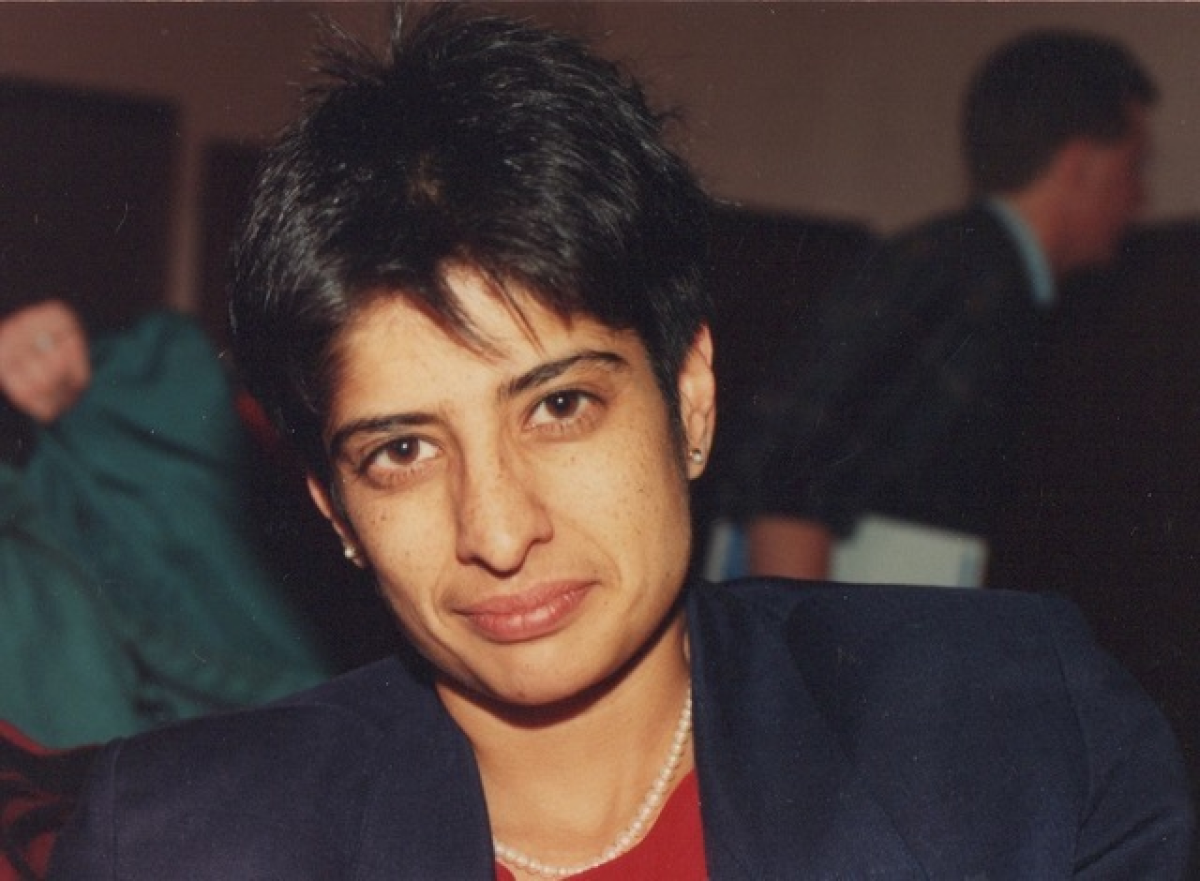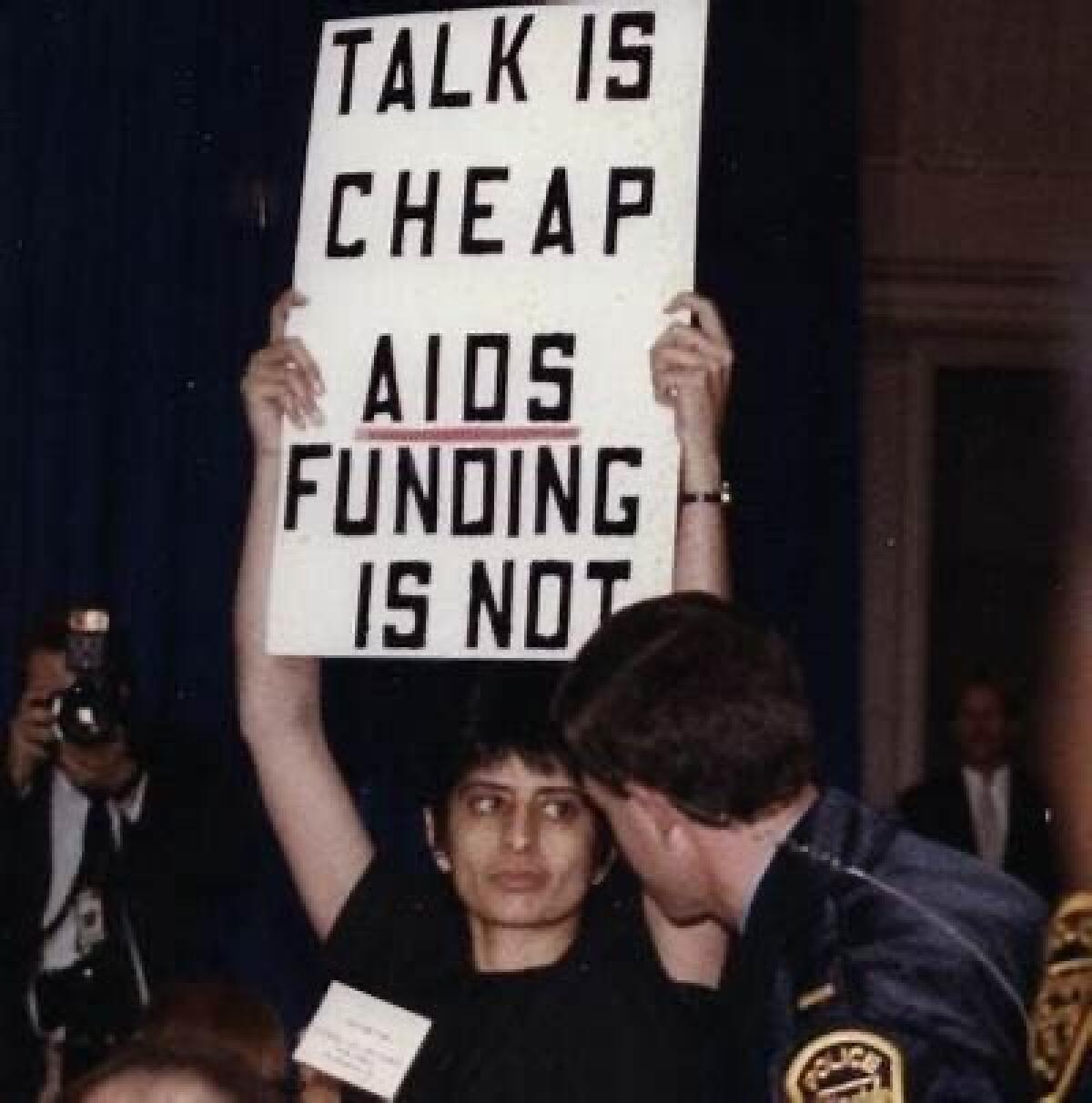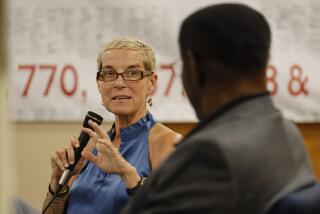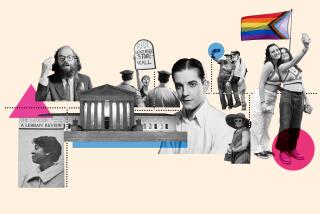Urvashi Vaid, pioneering LGBTQ activist and author, dies at 63

- Share via
Urvashi Vaid, a pioneering social justice activist, attorney and author who led the nation’s oldest LGBTQ advocacy organization during the height of the AIDS crisis and fought for fundamental reforms long before same-sex marriage and other basic rights were won, has died at 63.
Vaid, who had been battling cancer, died Saturday at a hospital in Manhattan, N.Y., said Richard Burns, a friend and board chairman of the American LGBTQ+ Museum. Vaid was a fellow board member.
As comfortable in board rooms as she was on the streets fighting for change, Vaid was both fiery and pragmatic. She saw the mainstream acceptance of LGBTQ people as an encouraging first step, but cautioned that it could well be an illusion and that greater social change was needed to achieve true liberation.
“The liberty we have won is incomplete, conditional and ultimately revocable,” she warned in her 1995 book “Virtual Equality: The Mainstreaming of Gay and Lesbian Liberation.”
Born in New Delhi, Vaid moved to New York when she was 8. Her father was a novelist and university professor; her mother a poet. Vaid was exposed to activism early. She said she participated in her first demonstration when she joined an anti-Vietnam War protest when she was 11. She later attended Vassar College and earned her law degree from Northeastern University in Boston.
From the start, Vaid seemed unafraid of being an agitator, as long as it resulted in the possibility of reform and change.

At President George H.W. Bush’s 1990 address on AIDS, Vaid — by then executive director of what then was The National Gay and Lesbian Task Force — arrived with a sign proclaiming “Talk is Cheap, AIDS Funding is Not.” She was not invited back to the White House, but the stunt had its desired effect as funding for AIDS research slowly began to swell.
The following year, she helped lead thousands of protesters outside the state Capitol in Sacramento after Gov. Pete Wilson vetoed legislation that would have added sexual orientation to the list of categories — such as race, sex, age — protected under the state’s Fair Employment and Housing Act. The demonstrators hurled plastic bags of red paint as state police officers in riot gear stood shoulder to shoulder on the Capitol steps.
Vaid took particular aim at Rep. William Dannemeyer, an Orange County Republican who had called for quarantining AIDS patients and making it a crime for gay men to donate blood.
“This is our response to the bigots of the world, people like Dannemeyer who call us revolting,” Vaid told the enthused crowd. “Revolting? You bet we are.”
Vaid’s causes were varied, and often overlapping. At Vassar, she joined the campaign pushing the school to divest from South Africa. At the ACLU, she worked to improve prison conditions, particularly for prisoners with AIDS. After her tenure with the National Gay and Lesbian Task Force, she formed what’s believe to be the first super PAC supporting LGBTQ women seeking elective office. She served as the executive director of the Arcus Foundation, which makes grants related to sexual orientation, gender identity and race. And she founded the Vaid Group, a consulting group that works to reduce structural inequities.
Her accomplishments and progressive goals were not lost on others.
Kierra Johnson, the current executive director of what’s now the National LGBTQ Task Force, described Vaid as “one of the most influential progressive activist of our times.”
Tennis legend Billie Jean King, a friend, tweeted that Vaid was “a force for good, never taking her eye off fighting for meaningful change as an activist for the LGBTQ+ community.”
Vaid is survived by her wife, Kate Clinton, a political humorist; and two sisters.
More to Read
Start your day right
Sign up for Essential California for the L.A. Times biggest news, features and recommendations in your inbox six days a week.
You may occasionally receive promotional content from the Los Angeles Times.







